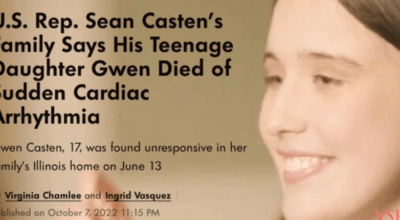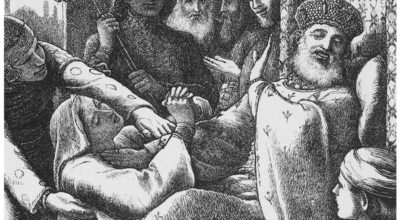
The sobering fact of driver license regimes causing much harm to the poor has come to the attention of members of the federal congress, who in 2021 began considering ways to pare back some of the effects of the states’ driver license rackets without taking any whacks at the root of the poisonous tree.
By David Tulis / NoogaRadio Network
Congress considered, if only for a few minutes, the Driving for Opportunity Act of 2021, that finds enforcement activity for suspended and revoked licenses consumes officers’ time and deepens poverty traps for millions of people. More than a million Floridians got suspension notices for unpaid fines and fees in 2017 alone.
Congress finds the following
(1) Driving a vehicle is an essential aspect of the daily lives of most people in the United States.
(2) Driving is often required to access jobs and healthcare, take care of family, get groceries, and fulfill other basic responsibilities.
(3) In many small cities, towns, and rural areas that do not have public transportation and ridesharing alternatives, driving is often the only realistic means of transportation.
(4) Even in cities with public transportation and ridesharing options, individuals vulnerable to infection during the COVID–19 pandemic and those complying with public health guidance regarding social distancing are increasingly reliant on driving as their primary means of transportation for essential travel.
(5) In the United States, millions of Americans have had their driver’s licenses suspended for unpaid court fines and fees.
(6) A person whose driver’s license is suspended or revoked for unpaid fines and fees will often find it more difficult to earn a living and therefore pay the debt owed to the government.
(7) The barrier to employment posed by driver’s license suspensions and revocations for unpaid fines and fees is especially problematic during the COVID–19 pandemic, when the unemployment rate is the highest it has been since the Great Depression.
(8) Drunk and dangerous driving are some of the leading causes of death and serious bodily injury in the United States, and promoting safety on the roads is a legitimate, necessary, and core governmental function. Suspending a license for unsafe driving conduct presents different considerations than suspending a license for unpaid fines and fees. Suspending a license for unsafe driving is an appropriate tool to protect public safety. Policymakers also may consider alternatives to suspension of a license for unsafe driving such as ignition interlock device programs.
The suspension of a driver’s or professional license is one of the most pervasive poverty traps for poor people assessed a fine that they cannot afford to pay. The practice is widespread.
Congress findings in 2021 driver license revocation aid bill
(9) According to the National Highway Traffic Safety Administration, every year on average, over 34,000 people are killed and 2,400,000 more people are injured in motor vehicle crashes. Some of the major causes of these crashes include speeding, impaired driving, and distracted driving. Nearly half of passenger vehicle occupants killed in crashes are unrestrained. The societal harm caused by motor vehicle crashes has been valued at $836,000,000,000 annually. The enactment of, enforcement of, and education regarding traffic laws are key to addressing unsafe behavior and promoting public safety.
(10) However, most driver’s license suspensions are not based on the need to protect public safety.
(11) In the State of Florida, 1,100,000 residents received a suspension notice for unpaid fines and fees in 2017 alone.
(12) Between 2010 and 2017, all but 3 States increased the amount of fines and fees for civil and criminal violations.
(13) In the United States, 40 percent of all driver’s license suspensions are issued for conduct that was unrelated to driving.
(14) In 2015, the State of Washington calculated that State troopers spent 70,848 hours dealing with license suspensions for non-driving offenses.
(15) The American Association of Motor Vehicle Administrators estimated that arresting a person for driving with a suspended license can take 9 hours of an officer’s time, including waiting for a tow truck, transporting an individual to jail, filling out paperwork, making a court appearance, and other administrative duties and accordingly Washington State Patrol Chief John Batiste called non-driving suspensions a “drain on the system as a whole”.
(16) The Colorado Department of Motor Vehicles determined that suspending driver’s licenses for offenses unrelated to driving consumed 8,566 hours per year of staff time in the Department.
(17) Many States impose a significant fee for reinstating a suspended driver’s license, such as Alabama, where the fee is $275.
(18) Driving on a suspended license is one of the most common criminal charges in jurisdictions across the country.
(19) Seventy-five percent of those with suspended licenses report continuing to drive.
(20) It is more likely that those people are also driving without insurance due to the costs and restrictions associated with obtaining auto insurance on a suspended license, thereby placing a greater financial burden on other drivers when a driver with a suspended license causes an accident.
(21) The American Association of Motor Vehicle Administrators has concluded the following: “Drivers who have been suspended for social non-conformance-related offenses are often trapped within the system. Some cannot afford to pay the original fines, and may lose their ability to legally get to and from work as a result of the suspension.
Forty percent of all driver’s license suspensions are issued for conduct that was unrelated to driving.
Congressional finding
Many make the decision to drive while suspended. The suspension results in increased financial obligations through new requirements such as reinstatement fees, court costs, and other penalties. While there is a clear societal interest in keeping those who are unfit to drive off the roads, broadly restricting licenses for violations unrelated to an individual’s ability to drive safely may do more harm than good. This is especially true in areas of the country that lack alternative means of transportation.
For those individuals, a valid driver license can be a means to survive. Local communities, employers, and employees all experience negative consequences as a result of social non-conformity suspensions, including unemployment, lower wages, fewer employment opportunities and hiring choices, and increased insurance costs.”.(22) A report by the Harvard Law School Criminal Justice Policy Program concluded the following: “The suspension of a driver’s or professional license is one of the most pervasive poverty traps for poor people assessed a fine that they cannot afford to pay. The practice is widespread.
Nearly 40 percent of license suspensions nationwide stem from unpaid fines, missed child support payments, and drug offenses—not from unsafe or intoxicated driving or failing to obtain automotive insurance. Suspension of a driver’s or professional licenses is hugely counterproductive; it punishes non-payment by taking away a person’s means for making a living. License suspension programs are also expensive for States to run and they distract law enforcement efforts from priorities related to public safety. License suspensions may also be unconstitutional if the license was suspended before the judge determined the defendant had the ability to pay the criminal justice debt.”
This 20-page legal notice lets you fight back vs. illicit ‘traffic stops’ — sue for damages, have defense in your criminal case
http://s6.voscast.com:7162/stream David show live 7A, repeating 6P weekdays

